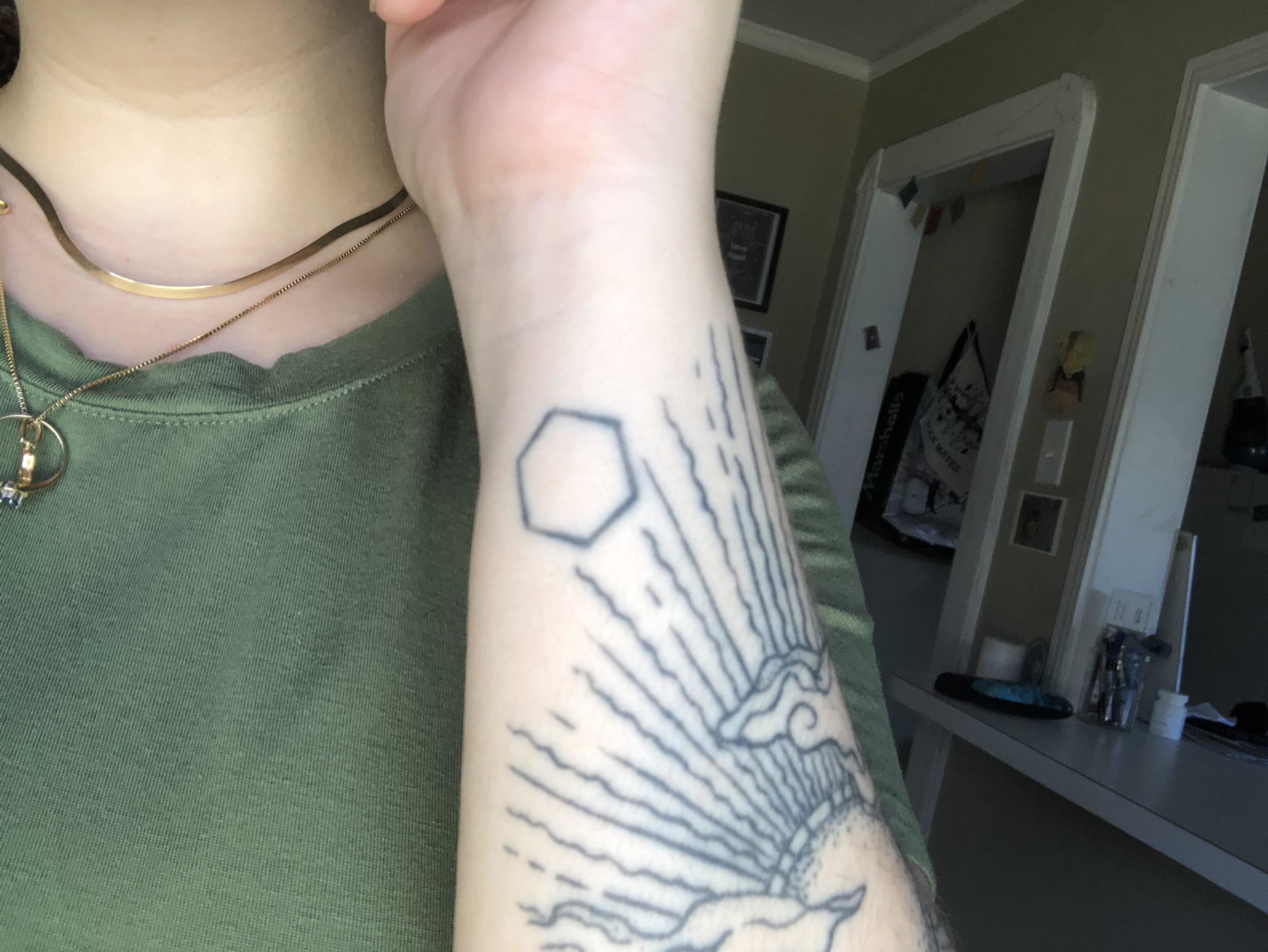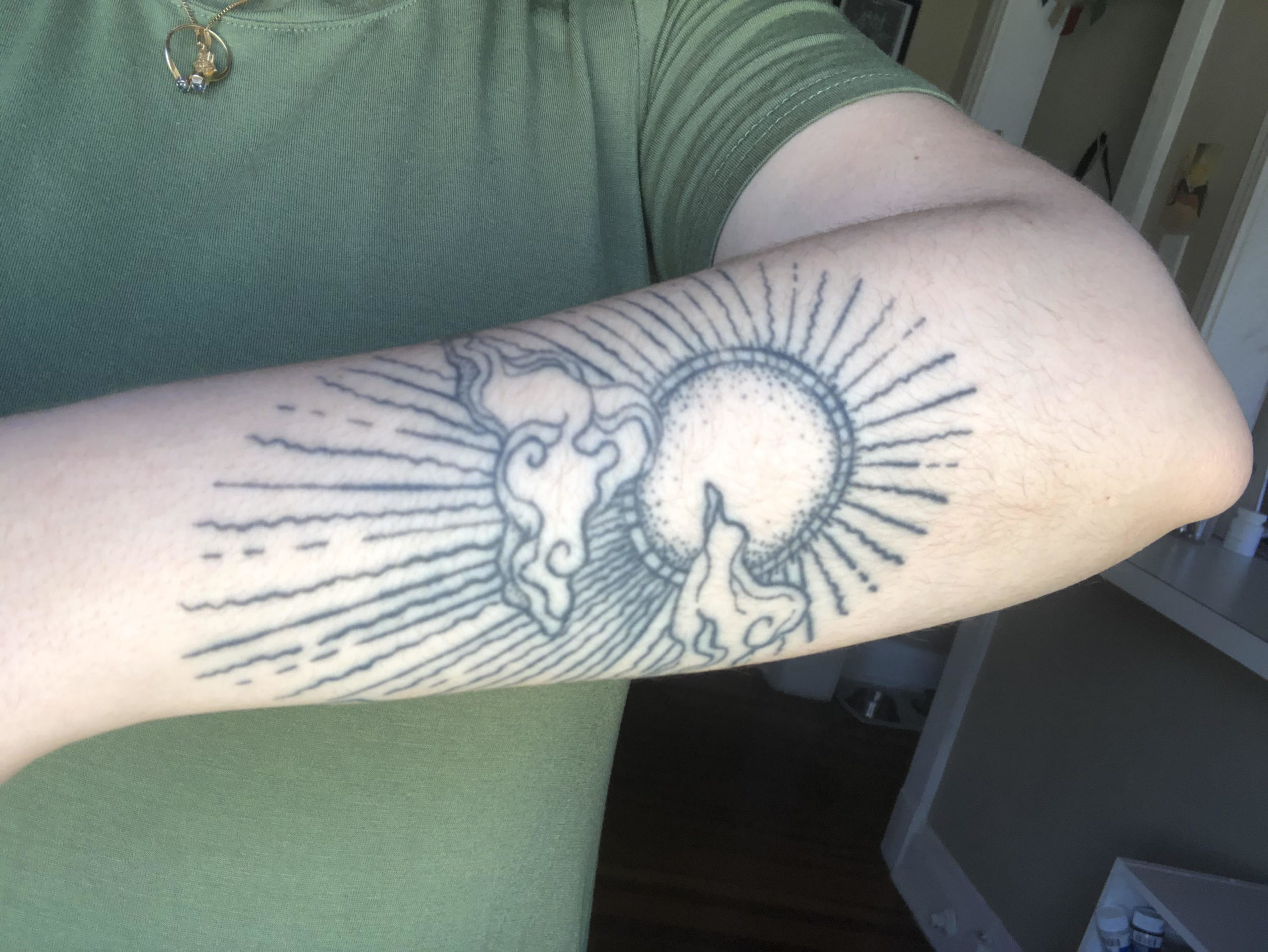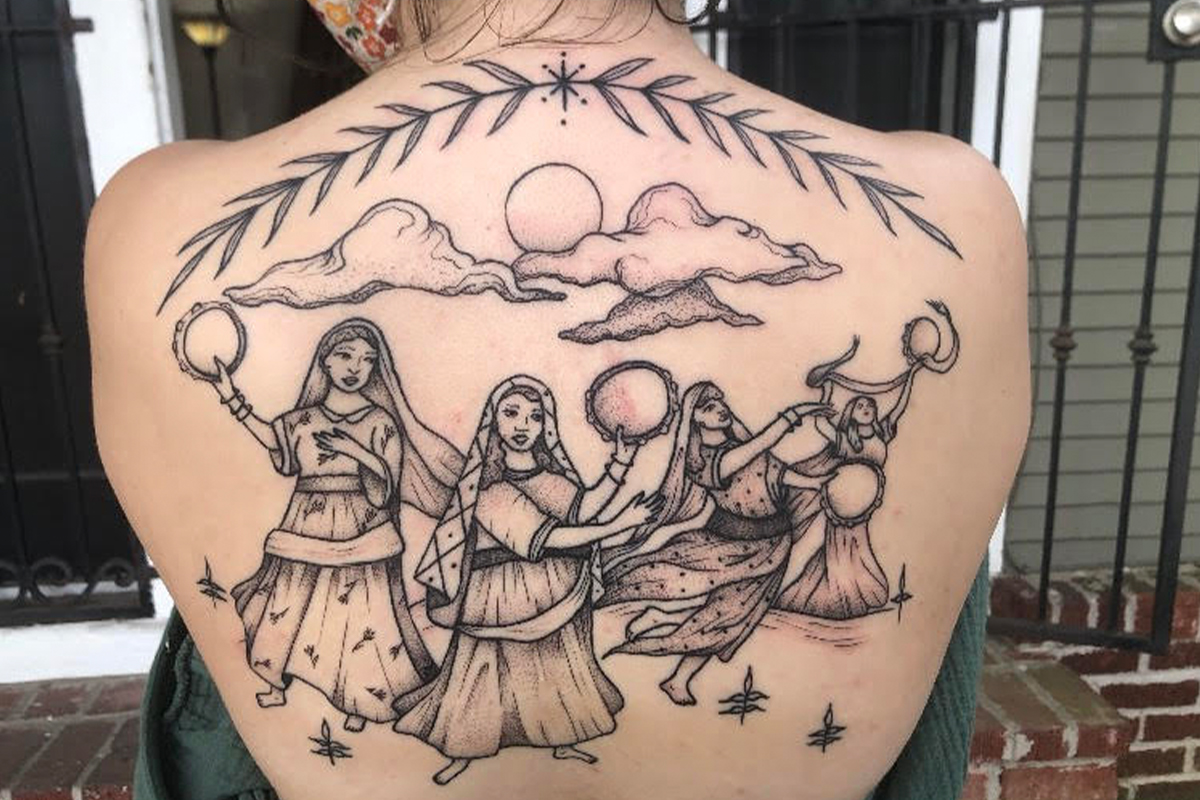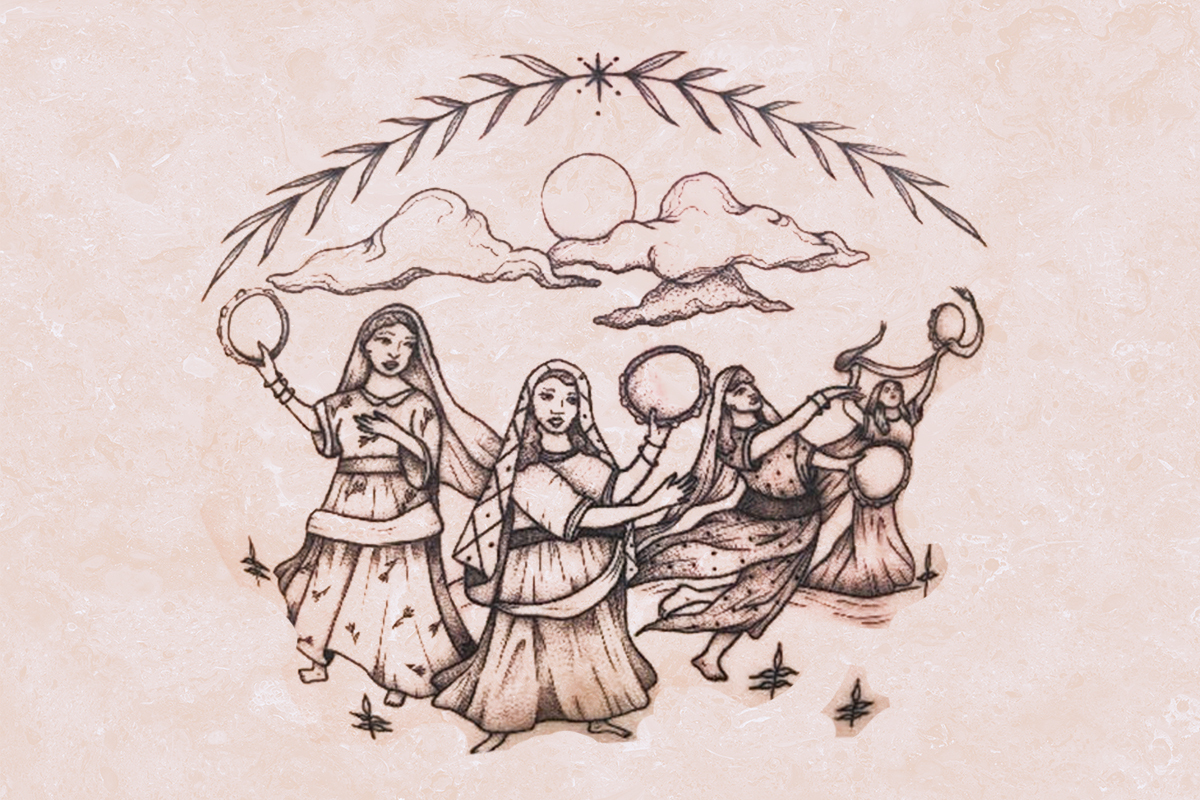There is a perpetual cycle when it comes to me and dating apps. This time will be different, I tell myself when I hit the download button under Bumble for the nth time. I look over the photos I chose once again. Sure, whatever, why not? I double check that I’ve tapped “Jewish” to show up on my profile. It’ll keep away the antisemites! It doesn’t. It’ll thwart questions that anyone can just Google! It won’t. But I still toss salt over my shoulder even though it didn’t bring me bad luck that one time I didn’t.
It turns out that of all the misguided questions and assumptions that go along with being a Jewish person on Bumble in the south, the most confusing conundrum is that I have a plethora of visible tattoos. Not just on Bumble — it’s confusing to most new people I meet. I can see the confusion in the way their eyes squint as they scan from one tattoo, to the Star of David I wear around my neck, to another tattoo. Sometimes it’s just those three blinking dots while someone types the inevitable question.
“But you can’t be buried—”
“I’m Reform,” I usually quip. Most of the time this results in another confused look. Many of the non-Jewish people I meet don’t know the difference between the different sects of Judaism. “We’re the hippies,” I tell them. It’s a gross oversimplification of what being a Reform Jewish person is to me. Maybe it’s not nice for me to intentionally further confuse them, but at some point one grows tired of explaining.
While it’s true the Torah is traditionally interpreted by many rabbis to forbid tattoos — “You shall not make gashes in your flesh for the dead, or incise any marks on yourselves,” reads Leviticus — it’s a common misconception that Jewish people with tattoos can’t be buried in a Jewish cemetery. It depends on a lot of things. Things you can Google. I hate that I find myself so unwilling to show patience to the non-Jewish people who ask me about Judaism, tattoos, and spirituality. It took me a long time just to come to terms with the fact that I don’t have to explain what I don’t want to. Reserving an explanation of my magic is for the people I love, not prospective Bumble dates.
I actually feel giddy explaining aspects of Judaism to my friends who listen with interest. They want to know and are willing to listen because it’s a part of me, and my willingness to share such a personal part of myself is a privilege, not an obligation. To the people I care about, the ones who I don’t mind explaining to, I tell them that my tattoos actually make me feel more Jewish and more spiritual.
As a young teen in a body that was changing so fast it felt like whiplash, I clung to the tenet that I was made in God’s image. Through years of feeling like an ugly duckling, insecure and unsure of myself in ways I couldn’t yet name, I had to remind myself that I am exactly as I was meant to be, braces and acne and all.
When I got my first tattoo, a small honeycomb shape on the side of my wrist, it just felt right. It was hard to explain at the time how such a small symbol meant so much. My sister and I discussed the tattoo for months before we went together. It was simple but it connected us in a magical, permanent way.

Floating around the internet abyss is a quote that says, “If your body is a temple, why not decorate the walls?” It made the rounds on Tumblr and my teenage self felt so seen, doodling flowers in permanent marker up my forearms. I loved feeling like a breathing piece of art, constantly interweaving secret symbols and messages that were significant only to me.
The size of my second tattoo was a shock to most of the people around me, and I had to assure them all that yes, it was exactly the size I wanted. And yes, the rumor is true, once you get one tattoo it’s hard to stop. I intend to procure quite a lot of body art.
As the art grows, I have a greater sense of self. It’s grounding to feel that pieces of my soul are reflected on my exterior. They’re not there to make others think or scrutinize, but if they do, that’s OK. It reflects all the aspects of an ever-changing self. Each piece of art on my body is a tiny part of me. Something I love, something I desire, something I value, something that reminds me of a certain time or place.

Reflecting on the sacred things in my life and then turning them into permanent body art is a holy, spiritual practice for me. I am reminded of the wonderful things in my life, of the desires, the love, and divinity of humanness. Reflecting on the beauty of life, it’s just so Jewish. Being able to see all of the important parts of myself through body art gives me confidence. Looking in the mirror, seeing the beauty I’ve cultivated with tattoo artists makes me glow. The intention of choosing what to put on my body forever makes me invincible, the true forager of my own path. Feeling confident and free, feeling intentionality and patience and pain, all make me mindfully certain of being made in the image of the divine.
There are so many aspects of Judaism that are open for reflection and debate, but for a very long time I believed there were only certain things I could question in the first place. Why can we question A but not B? Which led me to ask: Why don’t we question what it means to have body art as Jewish people? There is a very fine line regarding permanent body changes in Judaism. We choose a very permanent change for our baby boys as part of a bris, and yet we’re actively steered away from making our own mindful choices when it comes to other permanent change like tattoos and non-traditional piercings.
Diving deeper into my own journey with Judaism, I meditate on what is important to me and what makes me feel Jewish in a whole way. One fragment of many is reclaiming what’s been held against us. I see my body art as a reclamation. As a people, we can never take away or reverse what has been done to our ancestors. Even as a queer person, there was a time where the word queer was used as an insult, and now we use to it celebrate ourselves.
Tattoos were once used to dehumanize us as Jewish people, but tattoos as an art of beauty and reflection is my reclamation. It’s my exterior art gallery and some of it is specifically Jewish. My Jewish tattoo happens to be the one that was most painful. Don’t they say Judaism is all about suffering? On the top half of my back is Miriam, leading the women out of Egypt in song and dance. If you know the story, you might recognize it immediately. And if you don’t, it’s just a beautiful depiction of women in song and dance. Just like prayer, it took contemplation and presence of mind. It was painful and spiritual, not unlike the ancestral journey that put me where I am.
When my body art is a grounding, spiritual, contemplative, beautiful practice, who can tell me I’m wrong?




